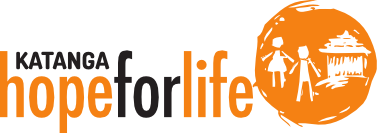What is Poverty?
We are all familiar with the word poverty. We know who in the world lives in poverty and who certainly doesn't but how do we know? What are the indicators that we use to work out whether someone lives in poverty or not?
“Poverty is the severe deprivation of basic human needs, including food, safe drinking water, sanitation facilities, health, shelter, education and information. It depends not only on income but also on access to services.”
Poverty is multidimensional and complex and, as a result, needs a holistic, sustainable, community centred approach to ensure families and individuals have the best chance of escaping poverty and becoming self-sufficient. It is important for governments and NGOs to assist poverty relief through empowerment and the nondiscriminatory provision of opportunities, leading to income stability for families and a boost in economic growth for both the local community and the wider country.
Related Posts
It’s time for the government to regulate private schools and institutions of learning
A lot has been said on this subject over the years by many parents and guardians but the efforts to address the frustration and the challenges encountered have not been forthcoming from the concerned party, which in this case is the government. In the past the government of Uganda had restricted private players into management, ownership and startup of primary and secondary schools. However, in the 1980s due to overwhelming demand for inclusive education that can be accessed by children in rural and urban areas, the government adopted new polices of privatisation, liberalisation and regulation to enhance improvements and expansion of the education sector.
In Uganda it is the women that hold the household together, yet it is the women that are discriminated against. It is with this in mind that the founders of Hope for Life Katanga identified women as their direct beneficiaries.
At the start of this school year in Kampala, Hope for Life was able to provide formal schooling for 42 children and young adults from Katanga. This was the most we have ever sent and this is amazing! It is also, currently, almost completely useless. That’s right, I said, and meant, useless. I chose that word carefully though because I certainly do not mean to say pointless.
I could carry on from Part 1 of this post, by sharing more stories of child sacrifice, FGM (Female Genital Mutilation), murder, corruption inc. police brutality, abduction, sex exploitation, slavery; all of which are forms of violence that are particularly detrimental for those who lack wealth, education and stature within their community - but I won’t. Instead we need to get informed and understand the root causes of violence, so that we can be proactive and effective in supporting the most vulnerable people around the world.
Violence against women and girls is one of the most systematic and widespread human rights violations. It is rooted in gendered social structures rather than individual and random acts; it cuts across age, socio-economic, educational and geographic boundaries; affects all societies; and is a major obstacle to ending gender inequality and discrimination globally.
“When we think of global poverty we readily think of hunger, disease, homelessness, illiteracy, dirty water and a lack of education, but very few of us immediately think of the global poor’s chronic vulnerability to violence - the massive epidemic of sexual violence, forced labor, illegal detention, land theft, assault, police abuse, and oppression that lies hidden underneath the more visible deprivations of the poor.”
Unsurprisingly, I often find myself in conversations with people, chatting about the work I am a part of in Uganda. I find myself simplifying what we do as a charity to fit into a couple of sentences, even when I have 20 minutes in front of an audience, the best I can do is give a brief overview that gives you a hint of the complexity. Poverty is complex, but important to talk about.
We are all familiar with the word poverty; we know who in the world lives in poverty and who certainly doesn't but how do we know? What are the indicators that we use to work out whether someone lives in poverty or not?









In October 2016, Chris (UK Director) and Mark (Co-Founder) went to visit Francis (Uganda Director) & Joshua (Co-Founder) in Uganda and had many conversations, looking at ways to improve and refine the HFLKatanga programs. The conversations they were having together, and with friends, were so interesting, they started to record them.
Instead of posting the entire transcript, or dodgy audio recording, we have broken the conversation up. Below is Grace's contribution to one of those conversations. This conversation began as the team wanted to learn from the experience that others had of being a sponsored child.